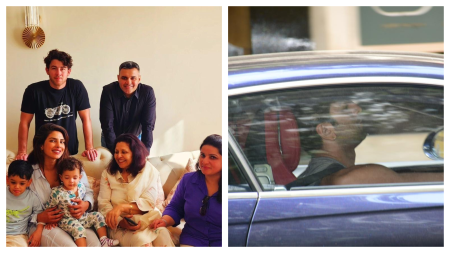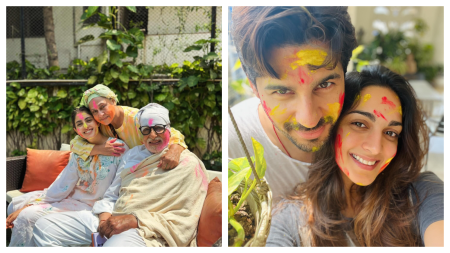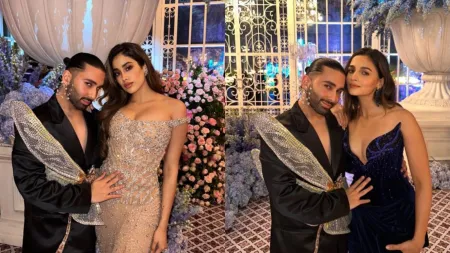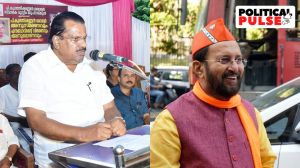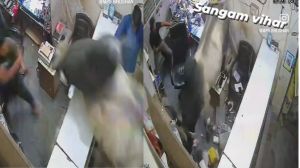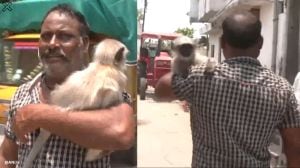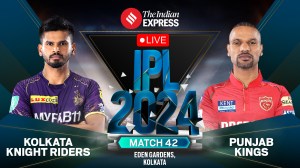- India
- International
Sounds Like a Plan
New event organisers and new listeners, the independent music scene in India is looking to expand its fan base beyond the metros.
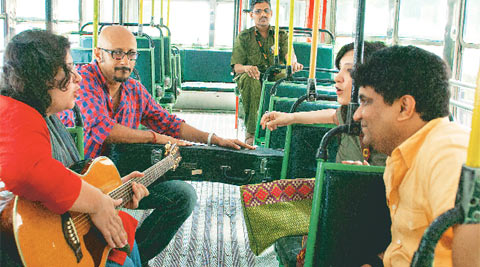 Monica Dogra of Shaa’ir
Monica Dogra of Shaa’ir
There is something about Swarathma’s music that made 17-year-old Vishwaraj Mahadik trek from Kolhapur to Pune to attend the Bacardi NH7 Weekender, the biggest annual indie music festival in India. The Bangalore-based folk-rock band is hugely popular for its earthy rhythm and homespun lyrics in Hindi and Kannada, and is one of the few Indian bands to have amassed a fan base in the UK. Kolhapur is closer to Bangalore than the UK, thought Mahadik, who loves Swarathma’s music so much, that he booked the band for a gig in his hometown.
“I wanted to bring a rock band to Kolhapur, something that people here have not seen before. But they needed to be a Hindi band so that people can understand what they are singing. People loved the show, and I’m planning to make this an annual affair,” says Mahadik. And while only 1,000 people attended the concert, Mahadik’s initiative is one of the many developments that is getting bands, brands and event managers excited about the independent, or indie music scene in India.
In the past five years, indie music has unshackled itself from hole-in-the-wall venues, and some select clubs in the country, to reach out to a large number of listeners with festivals such as NH7 Weekender (that travels to Pune, Bangalore, Delhi and Kolkata), Escape in Naukuchiatal, UP, Ziro in Arunachal Pradesh and Hornbill in Nagaland. The indie scene now has set its sights on making their music relevant in Tier-2 and Tier-3 cities like Ahmedabad, Surat, Agra, Baroda and Jodhpur.
“Indie music has come to a point where it does not need to stay a small cult, the music movement has become much larger, ” says Aditya Swamy, head, MTV India. The channel launched Pepsi MTV Indies last week with a format that does away with the VJ, plays only independent music in languages from all over India, and is dedicated to promoting independent endeavours in comedy, fashion and graffiti. Shows like One For The Road will see known artists such as Raghu Dixit, Shaa’ir and Func busking on the streets; Punk-Indiepedia will explain the lexicon of the indie community to new recruits. Open Files will be about album art and Tinker Tailor is a show on fashion.
Uday Benegal, vocalist of Indus Creed and Whirling Kalapas has seen the music video boom of the ’90s, its eventual implosion and now, the resurgence of independent music. “In the ’90s, both access to music and producing it as musicians was difficult. Now, a kid in a small town can produce his own music sitting at home, using software like Abelton or Logic. Whether it is rock, or electronic music, there will soon be artists from smaller towns that people will hear of,” he says.

Angaraag Mahanta, popularly known as Papon, is an example of what television can do for an artist who is not from a metro city. The Assamese musician and composer, who leads an electric folk-fusion band based in Delhi called the East India Company, won thousands of new fans after his turn as one of the six producers of last year’s Coke Studio India.
“People who don’t look like they listen to my music have come up to me and said they loved what I did in Coke Studio. The music scene right now is full with possibilities,” says Papon, 37, who along with Vishal Dadlani, is that rare artist who straddles both the indie scene as well as Bollywood.
An ecosystem is slowly emerging to facilitate the indie expansion. From artist managers and booking agents to event companies and venues, start-ups are being led by young entrepreneurs in smaller metros and towns. Thirty-six-year-old Gaurav Kapoor runs a furnishing shop in Varanasi, his family has been living there for ages. This year, Kapoor began an arts festival, Benaras Utsav, that will host bands such as Brahma and Duncun Rufus, among others.
“Featuring indie bands gives people a taste of today’s music. And this isn’t fluff music, these bands have an ability to create a space in your mind, and I don’t see why this won’t happen in other smaller towns,” says Kapoor. Rohit Naik, who books artistes for the Mariott property in Jaipur, believes that independent electronic music is making inroads like never before. “I am from Indore and I play in Jaipur. I’ve been booking artistes from across the country, and I can see the same happening in my hometown, as well as in Bhopal,” he says.
“Can a festival be held in Indore or Ranchi? Of course. But it can’t go from nothing to big music festivals. They have to start with smaller gatherings, campus gigs and then take it bigger, which will happen in the next couple of years,” says Vijay Nair, whose company Only Much Louder has been booking bands and taking care of production at various college festivals in smaller cities. Percept, the entertainment and media company, too, has been doing the same, but with independent electronic music acts. They’ve also kicked off Sunburn Reload, an initiative which took international and local DJs to 30 non-metro locations, including Bhopal, Vadodara, Jaipur, Ahmedabad and Chandigarh.
If Pepsi MTV Indies was launched in the pre-internet era, the challenges faced by bands and content creators would have been minimal. TV channels were game changers back then; but video killed the radio star, and the internet killed the music business. Television is just one of the many sources of entertainment, especially for a target audience that is obsessed with trying to find new music on the internet. Shows such as Sound Trek, The Dewarists, Soundtrippin’ and Roots, barely registered on the TRP scale even though their YouTube uploads were promoted aggressively.
However, while the internet is a great place to find music, television can bring fame. Arfaaz Kagawala aka Fuzzy Logic and drummer for Slow Down Clown, says that the power of aspiration cannot be ignored. “People in small towns watching TV see a person make music they can relate to. People are not stuck to Bollywood anymore, they want to do what is happening internationally,” he says.
Lyricist and musician Ankur Tewari, head of programming for Pepsi MTV Indies, talks about how the new channel is looking for greater integration with the internet: “It’s not the usual MTV. We want to merge TV and online. So if an up and coming musician from a smaller city puts up a video online and sends it to us, we’ll get him in touch with producers to make a video for him so we can play it on TV.”
Simran Mulchandani of Blue Frog, a venture that promotes live music, says that people need points of “infection”. When investors approached him to open a venue in Chandigarh, he decided to test the waters with a gig. About 600 people turned up, Mulchandani says that only 100 among them were engaged listeners. “We were like a new circus in town, with people coming for the gig with their entire families.” He decided not to set up shop there but he did leave with hope — the crowd loved blues band Soulmate over sufi-rock act Nasha. While Mulchandani believes strongly in the live experience, he says these infection posts could come through TV, radio, live events or the internet.
(With inputs from Sankhayan Ghosh)
Photos
Apr 26: Latest News
- 01
- 02
- 03
- 04
- 05





















